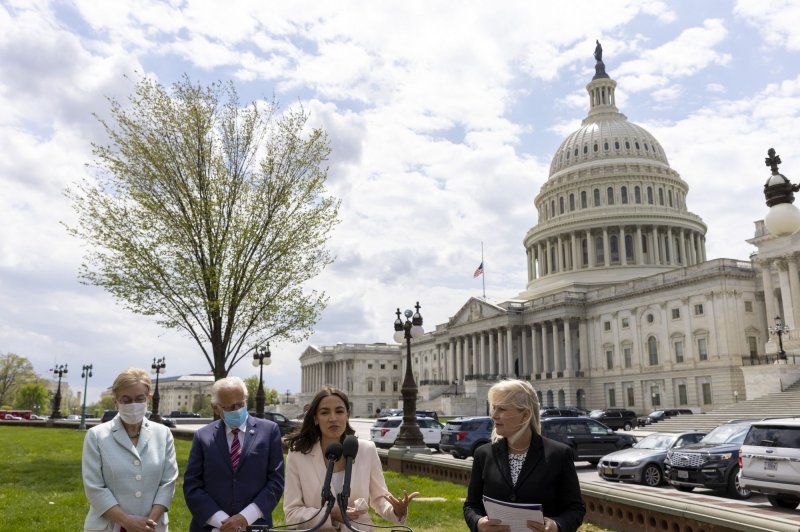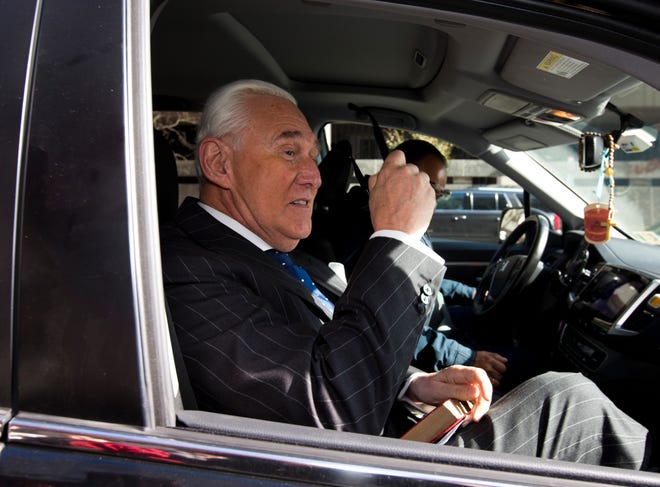The US intelligence community says the coronavirus will impact you for years to come, even if you didn’t get sick.
/cdn.vox-cdn.com/uploads/chorus_image/image/69125548/1231835315.0.jpg)
Even though life is beginning to return to some semblance of normal in parts of the world thanks to the success of vaccination efforts, a new report finds that the Covid-19 pandemic will continue to severely impact the world.
US intelligence agencies released their unclassified Annual Threat Assessment report on Tuesday, offering views on global challenges ranging from tensions with China to nuclear diplomacy with Iran to the dangers of domestic violent extremism.
But the most troubling part of the 27-page document, which top intelligence officials are presenting to Congress on Wednesday in open and closed sessions, is the section about how the coronavirus pandemic will define our world for years to come.
In the near term, the economies of hard-hit and lower-income countries will suffer, and access to adequate health care for the most vulnerable will decline. In the long run, great powers like China, Russia, and the US will jockey for global influence, potentially driving them apart instead of closer together at a time when the world most needs cooperation.
Simply put, it’s a grim picture.
How the coronavirus will shape our world in the short term
The most immediate impact will be economic calamity.
“The economic fallout from the pandemic is likely to create or worsen instability in at least a few — and perhaps many — countries, as people grow more desperate in the face of interlocking pressures that include sustained economic downturns, job losses, and disrupted supply chains,” the report reads. “Some hard-hit developing countries are experiencing financial and humanitarian crises, increasing the risk of surges in migration, collapsed governments, or internal conflict.”
Reflect on that for a moment: That’s the US intelligence community, one of the greatest collections of spies and analysts in the world, saying the financial hardships brought on by the coronavirus could foment or deepen “instability” in “perhaps many” countries. “The economic and political implications of the pandemic will ripple through the world for years,” they write.
Former top intelligence officials I spoke with agree with this assessment. “It is a hard truth,” James Clapper, who served as the director of national intelligence from 2010 to 2017, told me. “This development — coupled with the impacts of climate change — make for a not very rosy future unless mankind gets its act together, and soon.”
The economic part certainly rings true: The world economy shrank between 3 and 4 percent last year, as we were bombarded with images of closed-up restaurants, stores, and factories. Per the International Labour Organization, about 114 million people worldwide lost their jobs last year.
The damage in the US was so large that it led Presidents Donald Trump and Joe Biden to propose, and Congress to approve, trillions of dollars of economic relief just to keep the American economy afloat. Millions around the world won’t get such a lifeline from their governments, though, and they may eventually demand more from officials than the governments can provide. When that happens, usually a crisis follows.
“Many poorer countries are reaching the limit of what they can do with regard to using debt-fueled stimulus and social policies to cushion that continued fallout from the pandemic,” said Thomas Bollyky, a senior fellow for global health, economics, and development at the Council on Foreign Relations. “Something has to give.”
We’re already seeing the effects of this economic pain. The pandemic “has driven food insecurity worldwide to its highest point in more than a decade,” the report says. “The number of people experiencing high levels of acute food insecurity doubled from 135 million in 2019 to about 270 million last year, and is projected to rise to 330 million by year-end.”
Another immediate concern is that those who require medical attention may not get adequate care because so many resources are devoted to the pandemic.
“COVID-19-related disruptions to essential health services — such as vaccinations, aid delivery, and maternal and child health programs — will increase the likelihood of additional health emergencies, especially among vulnerable populations in low-income countries,” the intelligence community assesses.
One specific example in the report is how millions in Sub-Saharan Africa have experienced disruptions to HIV/AIDS treatments, along with a downturn in polio and measles vaccination campaigns “in dozens of countries.” Such lags in medical support will likely persist well into the future: The coronavirus doesn’t have to infect everyone to threaten their health.
How the coronavirus will shape our world in years to come
The US intelligence community also assesses there will be longer-term impacts that spell trouble for our world.
“States are struggling to cooperate — and in some cases are undermining cooperation — to respond to the pandemic and its economic fallout, particularly as some governments turn inward and question the merits of globalization and interdependence,” wrote the US intelligence community. “Some governments, such as China and Russia, are using offers of medical supplies and vaccines to try to boost their geopolitical standing.”
This is an important, maddening point. Instead of nations working together to solve a global problem, countries vying for influence went their own way.
They’ve engaged in two phenomena: “vaccine nationalism” and “vaccine diplomacy.” The “nationalism” part is when a nation’s leaders prioritize their own people for vaccination, even to the point of hoarding vaccines, to the detriment of the rest of the world. The “diplomacy” part is when countries share their vaccine supplies with other countries less out of pure goodwill and more to gain political and diplomatic favor with the recipient state.
The US, for example, was guilty of vaccine nationalism under the Trump administration, refusing to contribute to global vaccination efforts by keeping vials for exclusive use by Americans. That has changed somewhat under President Joe Biden, as he’s committed billions of dollars to support a worldwide, cooperative vaccination drive and pledged 4 million vials to Canada and Mexico. (Some argue the US could be doing more, however.)
And as cases quickly spike in India, New Delhi decided to curtail its vaccine exports to ensure it has enough at home.
Many countries are using vaccine diplomacy for their own interests. As The Verge noted last month, China and Russia have both developed their own vaccines and are using them to bolster alliances around the world. This could be a problem for global protection against the coronavirus, particularly in Beijing’s case. A top Chinese official admitted that its domestically produced vaccines aren’t quite as effective in preventing Covid-19.
There are also ramifications for US foreign policy. For example, the US has long had close ties with Latin America, but Beijing and Moscow are flooding the region with vaccine so governments there align closer to them, instead of Washington.
The toxic cocktail of “vaccine nationalism” and “vaccine diplomacy” will only further erode trust among nations and likely increase tensions, experts and the US intelligence community say. That, to put it mildly, is a big problem.
“This dire assessment on the Covid-19 pandemic should be yet another signal to political leaders that going it alone in his pandemic is going a course that is at their nations’ peril,” Bollyky told me.








